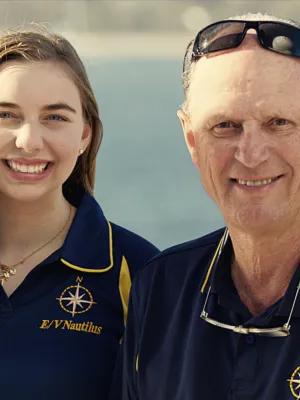I’ve known since I was 18 that I wanted to do deep-sea science. I discovered it through an introductory oceanography course during my first degree at University of North Carolina at Chapel Hill. I was inspired by a TED talk we watched in class one day by Dr Robert Ballard, a prominent oceanographer who discovered the wrecks of the Titanic and the Bismarck, as well as hydrothermal vents (which are like volcanos under water). I was surprised by how little we know about the deep sea and was shocked to hear that we have a much better map of Mars than we do for our oceans. Dr Ballard said that we need to inspire future generations to study the deep sea and become ocean explorers: that’s the moment I thought “Yes, I want to do that!”
At that time, I was doing an international relations degree. Fortunately, I managed to switch my degree to geological and marine sciences. One of the reasons I was doing international relations was that I was never that good with maths or science at school, but I would pass language and history courses easily. It meant that I never wanted to do science, and I went down the social sciences route instead. I was only doing the introductory oceanography course because people said it was one of the easiest science courses to pass. I just wanted to get my science requirements out of the way: I didn’t know it would change my life!
After switching degree, I was keen to start sailing and to get some experience out on the ocean, but there weren’t many opportunities available for someone of my age. Luckily, a professor alerted me to an internship with the Ocean Exploration Trust, and that felt like the beginning of my journey…



